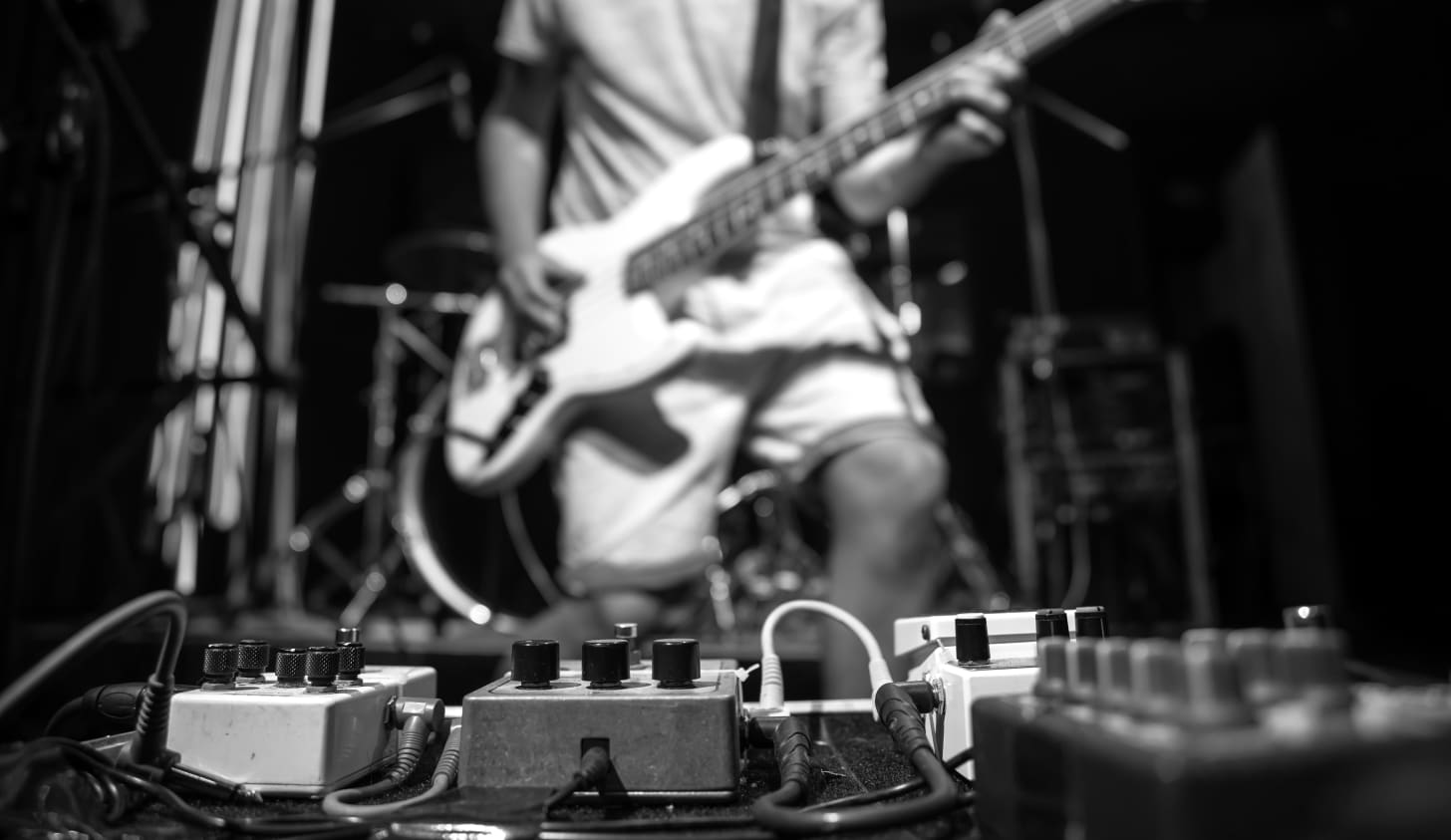Your gear is not your identity. But it is part of your business.
If your guitar won’t stay in tune, your cables are crackling, your mixer is held together with tape and hope—no one cares how “passionate” you are.
Your job is to deliver a good experience for the audience and the venue.
Crap sound = crap experience. And no one will pay you top dollar for it twice.
And the numbers back it up. The UK Music By Numbers 2023 report found venue owners list sound quality as a top-three factor when booking live acts—because it keeps customers happy and coming back.
Some of you love buying shiny toys. I’m mean, it’s fun :-)
Pedals you don’t know how to use.
Top-shelf mics with no EQ skills.
Vintage amps that weigh 100kg but still sound like mud because you haven’t maintained them.
Stop.
Buying better gear isn’t about ego.
It’s about solving problems in your show.
Jack White nails it: “It’s not about having the best gear. It’s about knowing how to use what you have.” (Rolling Stone, 2012) Don’t bankrupt yourself on fancy pedals if your cables crackle. Get reliable first.
Let’s identify your critical gear - your MUST HAVES:
✅ What are the core pieces you rely on every gig?
✅ Where does your sound actually fall apart?
✅ What do venues complain about?
✅ What slows you down at setup?
Prioritise these.
Examples:
Reliable guitar/bass/keys that holds tune.
Decent DI box or preamp.
Clean, working leads.
A vocal mic that suits your voice.
Stable, roadworthy stands.
It doesn’t have to be the most expensive.
It has to work.
Every. Single. Time.
Eventbrite’s Art of the Experience 2023 says it bluntly: 78% of attendees rank poor sound quality as their #1 turn-off, ahead of price or crowding.
Professional doesn’t mean “brand new from the showroom.”
✅ Check Facebook Marketplace, Gumtree, Cashies.
✅ Watch for stores that service used gear.
✅ Ask around—musos are always upgrading and selling off.
✅ Test thoroughly before buying.
If you’re canny, you can get very high-end gear at half price.
A $300 pedal that breaks mid-set? Worthless.
A $30 cable that always works? Priceless.
✅ Don’t be seduced by marketing hype.
✅ Read reviews from actual gigging musicians.
✅ Focus on durability, not gimmicks.
✅ Avoid “jack of all trades” units that do everything badly.
You’re not here to show off your pedalboard. You’re here to sound good.
The Live DMA 2023 European study is even clearer: 65% of venue managers say consistent sound quality is essential to justify entertainment budgets. Rising costs mean they’ll pay—but only for acts that deliver.
So many artists complain they can’t afford better gear, but never maintain what they own.
✅ Change strings regularly.
✅ Clean your fretboard.
✅ Check all solder joints.
✅ Test cables before gigs.
✅ Carry spares (leads, batteries, strings).
Treat your gear like the tools of your trade—because that’s what they are.
Bonnie Raitt doesn’t mince words: “If you don’t respect your instrument, you’re disrespecting the song.” (Guitar Player) Maintaining your gear is part of your artistry. It’s how you honour the audience.
You don’t need to buy everything at once just make smart upgrades over time.
✅ Make a list of priority upgrades.
✅ Set realistic budget targets.
✅ Replace the weakest link first.
✅ Reinvest a % of your gig money into gear.
Think long-term. A small, regular investment now = professional reliability later.
Brian Eno reminds us: “Limitations are often what make you creative. But you need reliability first.” (1996) Buy smart. Prioritise reliability over flash.
Your gear is the promise you make when you deliver your show.
✅ “I will sound good.”
✅ “I will be reliable.”
✅ “I will deliver a professional experience.”
When you break that promise? You don’t just lose the opportunity. You damage your brand.
You want to be taken seriously? Take your tools seriously. Don’t bankrupt yourself chasing the latest trend. But don’t insult your own talent by refusing to invest in what makes it shine.
Your show deserves better than second-hand excuses. Give it the gear to match.
✅ Sources:
Written by Nichola Burton. I work in partnership with Agents, Artist Managers and Event Producers, who juggle a diverse range of relationships in the Musoverse, to curate, manage and measure data in systems, experience, creative and content to support the entire Musoverse operation in my enterprise A Little Pitchy Copyright 2025



